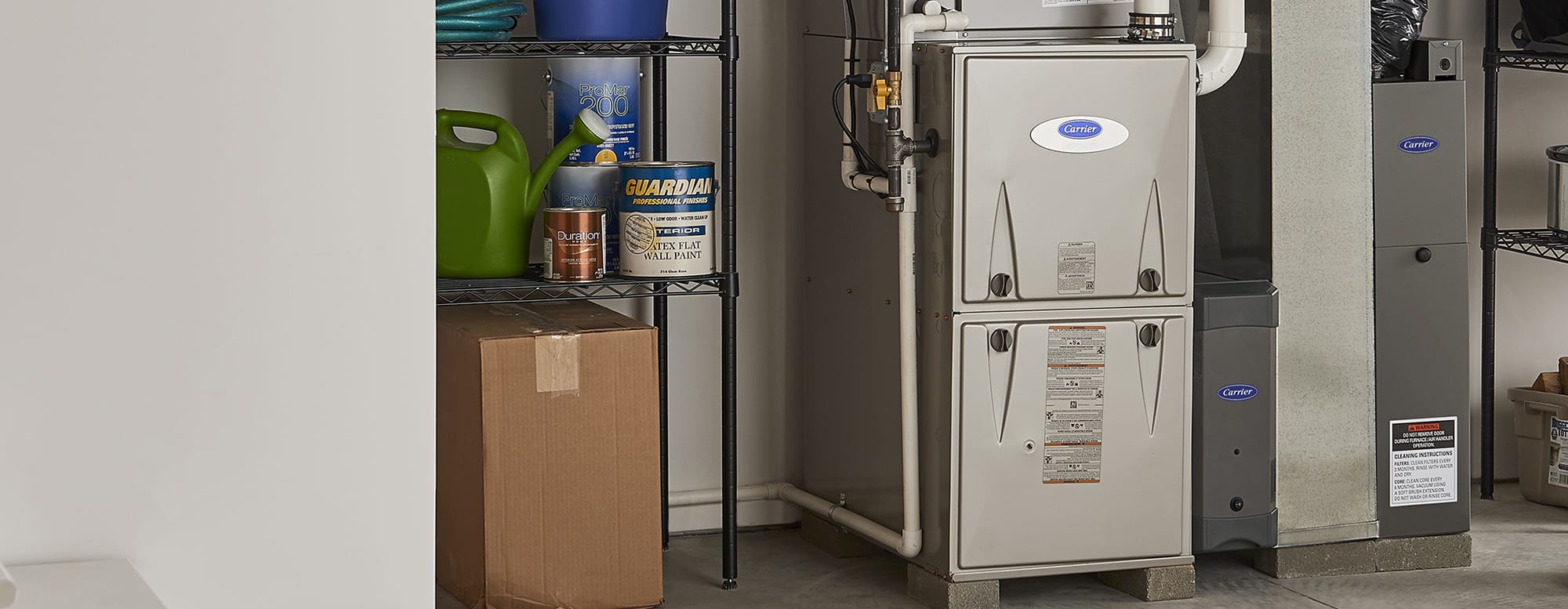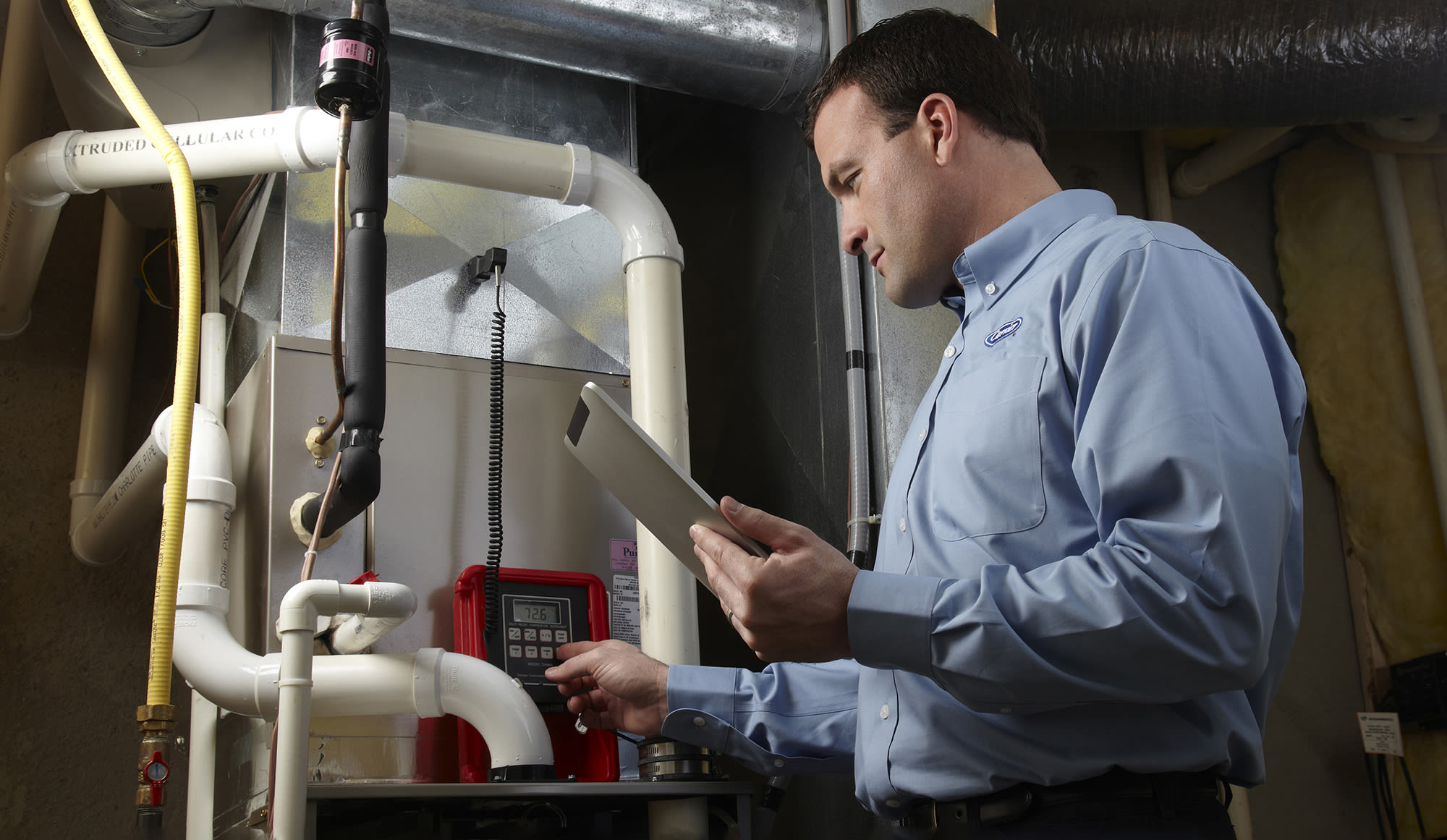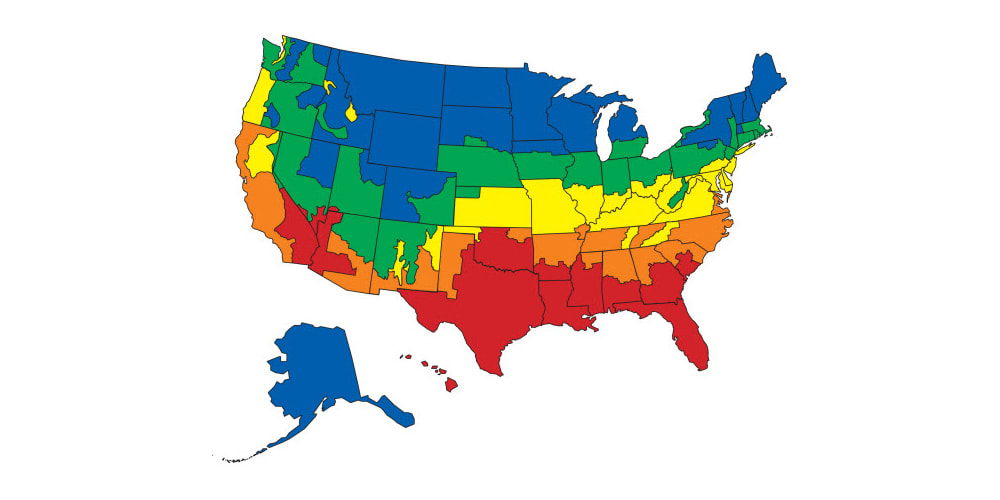Calculating Furnace Size
What Size Furnace Do I Need?
Furnaces come in all shapes and sizes, making the question “what size furnace do I need?” a little more complicated than just picking between small, medium or large. And while it might be tempting to simply ask your dealer to super-size it, the go big or go home mentality isn’t the right approach to maximizing the comfort and efficiency of your home heating system. Calculating furnace size is essential. The square footage of your house is vital to roughly estimate the furnace size but isn't the only factor that has to be considered when buying a furnace .

Accurate sizing is important for comfort, energy efficiency and the lifespan of the heating and cooling system because:
- An oversized furnace heats the space quickly, causing it to cycle on and off too often. The constant on-off cycle is inefficient, can drive up operating costs, and can add wear-and-tear to key components which can potentially shorten furnace life.
- An undersized unit will not adequately heat the home and will run continuously, which can waste energy and money.
The size of your home and weather in your area are two of the most important factors to consider for properly calculating furnace size, but there are many other variables to consider. For an accurate accounting of all of these parameters, make an appointment with a reputable Carrier furnace dealer. Once your local Carrier dealer has assessed your furnace sizing requirements, they will have a comprehensive selection of furnaces to best match all of your needs.

How are New Furnaces Rated?
Furnaces are rated according to their efficiency as expressed in terms of AFUE, and also according to their “size,” or heating output capacity, as expressed in BTU/h. When the subject, “how big a furnace do I need” comes up with your local Carrier HVAC expert, it is usually in reference to its BTU rating. BTU stands for British thermal unit and represents the amount of heat needed to raise one pound of water 1⁰ Fahrenheit. Furnace size or capacity is expressed in BTU/h, or the amount of British thermal units the furnace can generate per hour.
Choosing the correct size furnace for your home is important because an undersized furnace won’t generate enough heating capacity to keep your home warm. It will run constantly to keep up with demand. An oversized furnace will frequently turn on and off because it is supplying too much heat, which creates uncomfortable, up-and-down temperature swings and reduced efficiency. Your local Carrier dealer is experienced at calculating furnace size and will do what’s called a “load calculation” to determine the size most appropriate for your home. Typical residential gas furnaces will be available in various sizes between 44,000 BTU/h and up to 120,000 BTU/h.
Understanding Furnace Efficiency Ratings
Once your Carrier dealer has completed a load calculation to determine the proper size furnace for your home, you still have decisions to make. That’s because two furnaces with the same heating capacity can have different efficiency ratings. Furnace efficiency ratings are expressed in terms of AFUE percentage and will be displayed on the furnace with the yellow Energy Guide label. AFUE stands for “annual fuel utilization efficiency”. Furnace AFUE represents the percentage of heating energy from the fuel source that is converted to heat your home. It is calculated by taking into account the furnace’s total heating output over a year’s time in relationship with the amount of fuel used over the same amount of time.
Different heating fuel sources have slightly different requirements, but natural gas furnaces, the most commonly used across the United States,
[1]
are required to deliver a minimum of 80% AFUE. The highest percent efficiency models can achieve as much as 98.5% AFUE. When looking to buy a furnace, you can identify the higher efficiency models by looking for the ENERGY STAR® logo. ENERGY STAR standards are slightly different for each fuel source. For more information on how Carrier high efficiency furnaces can help save money on operating costs compared to lower efficiency models, while also providing enhanced efficiency benefits, visit our dedicated high efficiency furnaces page.
Additional Factors to Consider
An experienced and reputable HVAC contractor will perform a load calculation to accurately determine the correct size of furnace for your home, perhaps following guidelines from the Air Conditioning Contractors of America (ACCA®) or the American National Standards Institute (ANSI®). As a rule of thumb, the number of square feet in your home will be used, along with the BTU furnace rating, and average outdoor temperature in your area. However, there are additional factors that should be considered, which include:
- Home insulation in attics, roof and walls
- Additional heat-generating sources such as wood-burning stoves and fireplaces
- Quality of ductwork
- Number, size and location of windows and doors
- Orientation of home, number of “exposed” walls
- Open floorplan vs. many isolated spaces
- Climate zone
As you may have noticed, not all of the factors involved are a matter of getting out a tape measure and jotting down some dimensions. There will be a bit of estimating that goes into a load calculation, and that’s another reason why selecting an experienced HVAC contractor makes so much sense.

Contact a Professional For Furnace Size Calculating
When searching for a contractor to answer the question “How big of a furnace do I need?”, don’t just randomly select any dealer. Go with a trusted recommendation, or find a Carrier furnace dealer in your area using the Carrier dealer locator. Not only will you get a professional assessment of your home’s heating needs and load requirements, you’ll have access to a comprehensive line of Carrier furnaces designed to fit virtually any of your home heating challenges.ACCA is a registered trademark of Air Conditioning Contractors of America Corporation.
ANSI is a registered trademark of American National Standards Institute, Incorporated.
Frequently Asked Questions About Calculating Furnace Size
Learn More About Furnaces
- Need furnace service? Click to learn more about furnace service and maintenance.
- Carrier can help you determine the cost of a new furnace
- How long does a furnace last? Click to learn more.
- What is the cost of furnace replacement vs. repair

